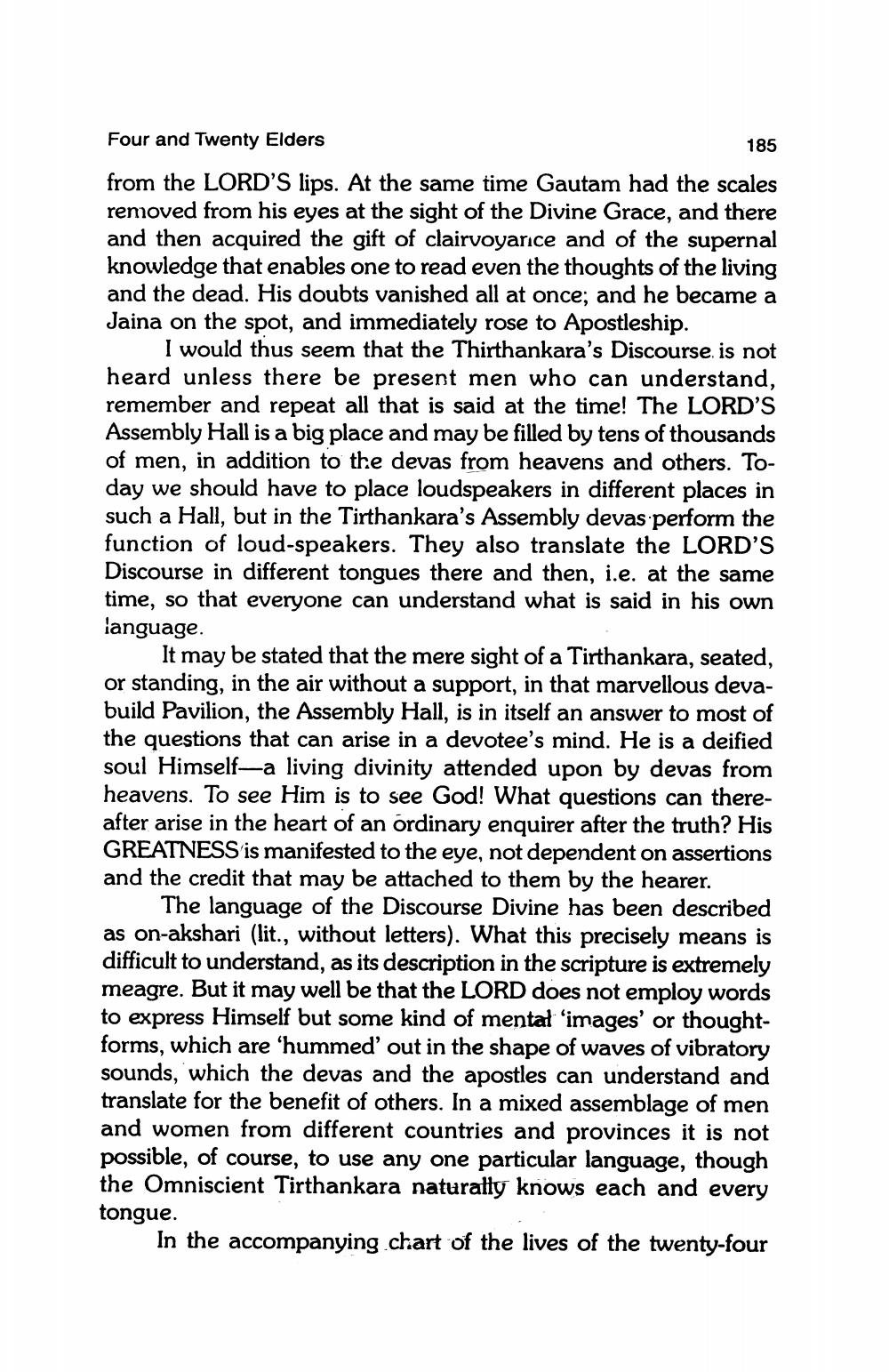________________
Four and Twenty Elders
185
from the LORD'S lips. At the same time Gautam had the scales removed from his eyes at the sight of the Divine Grace, and there and then acquired the gift of clairvoyarıce and of the supernal knowledge that enables one to read even the thoughts of the living and the dead. His doubts vanished all at once; and he became a Jaina on the spot, and immediately rose to Apostleship.
I would thus seem that the Thirthankara's Discourse is not heard unless there be present men who can understand, remember and repeat all that is said at the time! The LORD'S Assembly Hall is a big place and may be filled by tens of thousands of men, in addition to the devas from heavens and others. Today we should have to place loudspeakers in different places in such a Hall, but in the Tirthankara's Assembly devas perform the function of loud-speakers. They also translate the LORD'S Discourse in different tongues there and then, i.e. at the same time, so that everyone can understand what is said in his own language.
It may be stated that the mere sight of a Tirthankara, seated, or standing, in the air without a support, in that marvellous devabuild Pavilion, the Assembly Hall, is in itself an answer to most of the questions that can arise in a devotee's mind. He is a deified soul Himself—a living divinity attended upon by devas from heavens. To see Him is to see God! What questions can thereafter arise in the heart of an ordinary enquirer after the truth? His GREATNESS'is manifested to the eye, not dependent on assertions and the credit that may be attached to them by the hearer.
The language of the Discourse Divine has been described as on-akshari (lit., without letters). What this precisely means is difficult to understand, as its description in the scripture is extremely meagre. But it may well be that the LORD does not employ words to express Himself but some kind of mental 'images' or thoughtforms, which are ‘hummed' out in the shape of waves of vibratory sounds, which the devas and the apostles can understand and translate for the benefit of others. In a mixed assemblage of men and women from different countries and provinces it is not possible, of course, to use any one particular language, though the Omniscient Tirthankara naturally knows each and everu tongue.
In the accompanying chart of the lives of the twenty-four




